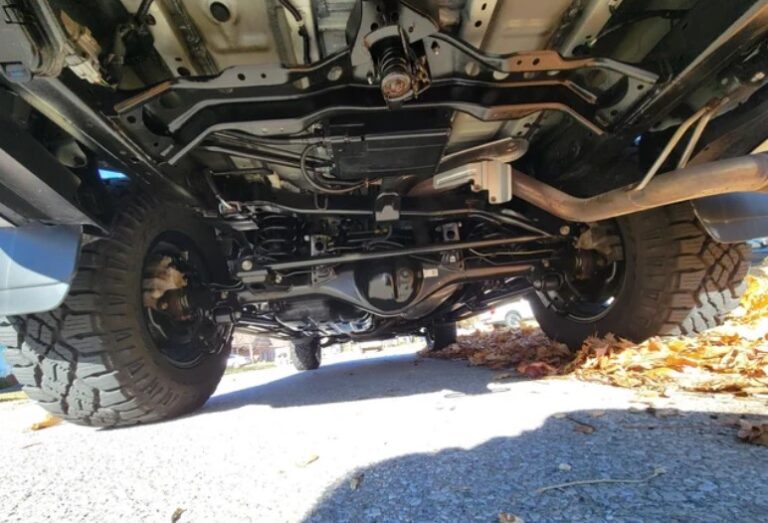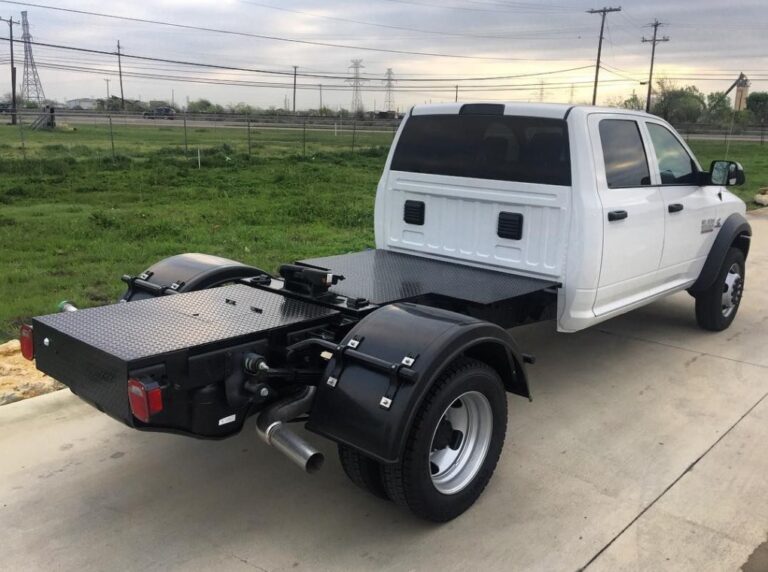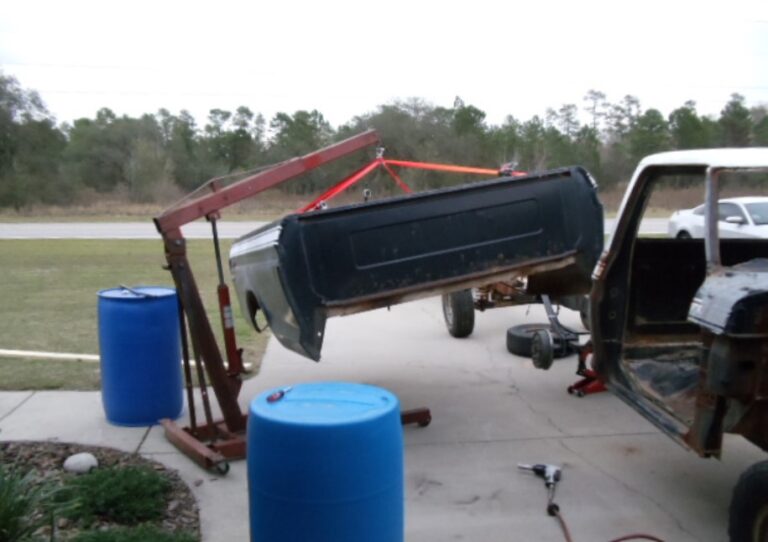What Happens If You Get Caught With A Deleted Truck?
In this article, we’ll explain What Happens If You Get Caught With A Deleted Truck? Understanding the consequences of getting caught with a deleted truck is crucial for truck owners and operators. A deleted truck refers to a vehicle where the emission control devices have been removed or tampered with. This practice, often done to improve performance or fuel efficiency, can lead to serious legal, financial, and environmental repercussions.
Key Takeaways
- Legal implications of driving a deleted truck
- Financial consequences include fines and potential loss of income
- Environmental impact and public health concerns
- Mechanical and warranty issues that may arise
- The importance of complying with emission regulations
What Happens If You Get Caught With A Deleted Truck?
When caught with a deleted truck, the consequences can be severe. Legal repercussions often include hefty fines and possible criminal charges, depending on the jurisdiction. Additionally, the truck may be impounded, leading to business disruptions and loss of income for commercial operators.

Legal Repercussions
Fines and Penalties
The fines for operating a deleted truck vary by region but can reach thousands of dollars. In some cases, criminal charges might be filed, especially if the deletion leads to significant environmental harm.
License and Registration Implications
There’s a risk of license suspension or revocation for the driver. The truck’s registration can also be affected, potentially leading to its cancellation.
Financial Consequences
Cost of Reinstating Emission Controls
Reinstating the emission control systems can be expensive. These costs are often compounded by the loss of warranty, increasing the financial burden on the owner.
Impact on Business Operations
For commercial trucks, the penalties can disrupt business operations. The downtime during the reinstatement of emission controls or while the truck is impounded can lead to significant loss of income.
Environmental and Health Impact
The removal of emission controls leads to increased pollution. This not only harms the environment but also poses significant public health risks due to the release of harmful pollutants.

Warranty and Mechanical Concerns
Voiding Manufacturer’s Warranty
Tampering with emission controls often voids the manufacturer’s warranty. This leaves the owner financially responsible for any subsequent mechanical failures or repairs.
Potential Mechanical Issues
A deleted truck might experience increased wear and tear. This can lead to more frequent breakdowns and maintenance issues, adding to the overall cost of ownership.
Compliance with Emission Regulations
Adhering to emission regulations is not just a legal requirement; it’s a responsibility towards the environment and public health. Ensuring that trucks meet these standards helps reduce pollution and promotes sustainable practices in the transportation industry.
Importance of Regular Inspections
Regular inspections and maintenance can prevent issues related to emission control systems. This proactive approach helps in identifying potential problems before they lead to legal complications.
Understanding Emission Standards
Being aware of the emission standards applicable in your area is essential. This knowledge can guide truck owners in making informed decisions about their vehicles and staying compliant.
What Is A Truck Delete, And What Does It Achieve?
A truck delete refers to the removal or modification of a truck’s emission control systems, including components like the diesel particulate filter (DPF), exhaust gas recirculation (EGR) system, and selective catalytic reduction (SCR) system.
Truck owners often perform deletes to improve engine performance, increase fuel efficiency, or reduce maintenance costs associated with these systems. However, this can lead to increased emissions of pollutants, including NOx gases, particulate matter, and others harmful to the environment and public health.
What Are The EPA Laws And Regulations Regarding Emission Deletes?
The United States Environmental Protection Agency (EPA) enforces strict regulations regarding vehicle emissions. According to the Clean Air Act, it is illegal to modify or remove any component of a vehicle’s emission control system.

This includes any changes made to the hardware or software that can alter the effectiveness of emission control devices. The EPA regulations are designed to ensure that vehicles meet federal emission standards to protect the environment and public health from air pollution.
What Are The Environmental Consequences Of Truck Deleting?
The environmental consequences of truck deleting are significant. Removing emission control devices leads to increased emissions of harmful pollutants, including nitrogen oxides (NOx), particulate matter (PM), and hydrocarbons.
These pollutants contribute to air pollution, which can lead to environmental issues such as acid rain, smog, and deterioration of the ozone layer. Furthermore, these emissions have severe health impacts, including respiratory problems, heart disease, and other health hazards, especially in urban areas with high traffic.
Are Deleted Trucks Illegal?
Yes, deleted trucks are illegal in many countries, including the United States. Under the Clean Air Act, it is unlawful to remove, disable, or bypass the emission control devices of a truck. This includes any modifications that impair the effectiveness of these systems.

The act applies to both private individuals and commercial entities. The legality is enforced by the EPA and other regulatory bodies, and compliance is mandatory to maintain the vehicle’s legal status on the road.
What Is The Penalty For Deleting A Diesel Truck?
The penalties for deleting a diesel truck can be severe. They can range from hefty fines to criminal charges, depending on the extent of the violation and the jurisdiction. Fines can go into thousands of dollars, and in some cases, individuals or businesses may face civil penalties.
Additionally, vehicles found in violation may be impounded or required to be brought back into compliance at the owner’s expense. For commercial operations, this can also mean significant downtime and loss of income.
Conclusion
Getting caught with a deleted truck presents a complex mix of legal, financial, and environmental challenges. Understanding these implications is crucial for truck owners to avoid the risks associated with non-compliance. Ensuring adherence to emission regulations not only avoids penalties but also contributes to a healthier environment and public well-being.
Frequently Asked Questions
Are There Any Safe Alternatives to Deleting a Truck?
Instead of deleting, owners can explore legal performance upgrades that comply with emission regulations. Regular maintenance and use of quality parts can also enhance performance without breaking the law.
Can You Reverse a Truck Deletion?
Yes, it is possible to reverse a truck deletion by reinstalling the original emission control devices. However, this process can be costly and time-consuming.
What Happens to the Truck’s Warranty If It’s Deleted?
Modifying or deleting emission control systems typically voids the vehicle’s warranty. This means any future repairs or issues, even unrelated to the deletion, may not be covered under the warranty.

Welcome to the exhilarating world of Matt Rex, a professional car racer turned renowned vehicle enthusiast. Immerse yourself in his captivating blog as he shares heart-pounding adventures, expert reviews, and valuable insights on cars, trucks, jets, and more. Fuel your passion for speed and discover the beauty of vehicles through Matt’s engaging stories and meticulous expertise. Join the ever-growing community of enthusiasts who find inspiration and expert advice in Matt Rex’s blog—a digital hub where the thrill of speed meets the pursuit of knowledge.







